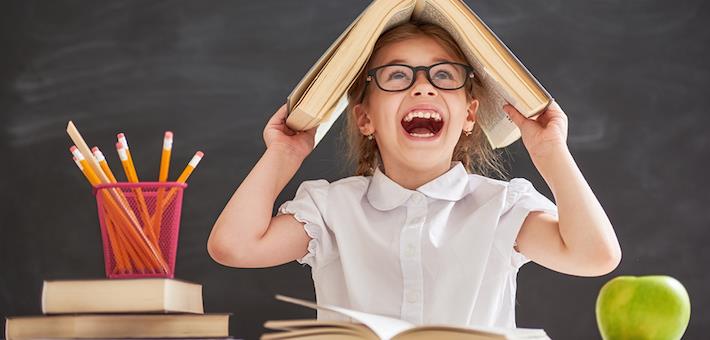
Because I’m Happy! How Happy Children and Teens Perform Better At School
A study in Journal of Happiness Studies shows that happy kids perform better at school and that kids who perform better at school are happier. However, kids’ happiness as well as their performance at school varies by age. For example, children aged 9-10 years are happier and perform better at school than teens aged 15-16 years. One possible reason for this is the atmosphere in class as there is more competition in a class of teens.
Take aways
- Feeling happy at school is related to doing better at school.
- Feeling connected with teachers and other kids at school and getting good grades are important for the happiness level of children and teens at school.
- Children are happier and perform better at school than teens; this might be due to a more friendly, non-competitive classroom atmosphere.
- For parents, practitioners and educators it is important to be aware that feeling connected and getting good grades are essential to the happiness of children and teens.
- Also, happiness school programs may help children to perform better in class.
Study information
The question?
How do children and teens conceptualize happiness at school? And does is relate to self-reported happiness and academic achievement?
Who?
104 children aged 9 to 10 years (49% girls) and 113 teens aged 15 to 16 years (49% girls). All from middle-class socio-economic backgrounds and 93% Caucasian, 5% Latin American and 2% Asian.
Where?
Spain
How?
The study existed of three phases during the academic year. First of all, 2 months after the new academic year started (late October/ beginning of November), the children and teens wrote down in their own words what it meant to be happy in the school. This was done to determine how children described happiness at school.
In February, the researchers assessed the self-reported happiness level of each student as they filled out the School Happiness Single-Item Scale (“Please grade your happiness at school”). Finally, once the academic year ended, the researchers received the academic achievement of the students, as the school provided each student’s average of the grades obtained throughout the whole academic year (GPA).
Facts and findings
- Both children and teens mentioned seven descriptions of happiness at school; helping, being praised, good grades, enjoyment, learning, leisure and friends (see Figure 1).
- Children mentioned happiness at school as ‘being with friends’ most often and for teens it was the second most mentioned term. This highlights the importance of feeling connected for the children’s and teen’s well being at school.
- As can be seen in figure 1, children and teens also thought that ‘good grades’ and ‘being praised’ were important when talking about happiness at school.
- Happiness at school led to a better academic achievement of children and teens and this better academic performance also made them happier:
- Children reported to be happier at school than adolescents (see Figure 2). This might be due to different classroom environments, as there is for example less competition and judgment in a classroom of children compared to a classroom with older teens.
- As happiness and academic achievement were related, it seems logical that children obtained a higher GPA than teens (see Figure 2).
- Teens who described happiness at school as ‘being with friends’, ‘being praised’, ‘helping’ and not ‘having leisure time’ were happier at school, and thus also performed better at school than those who did not described happiness in those terms.

